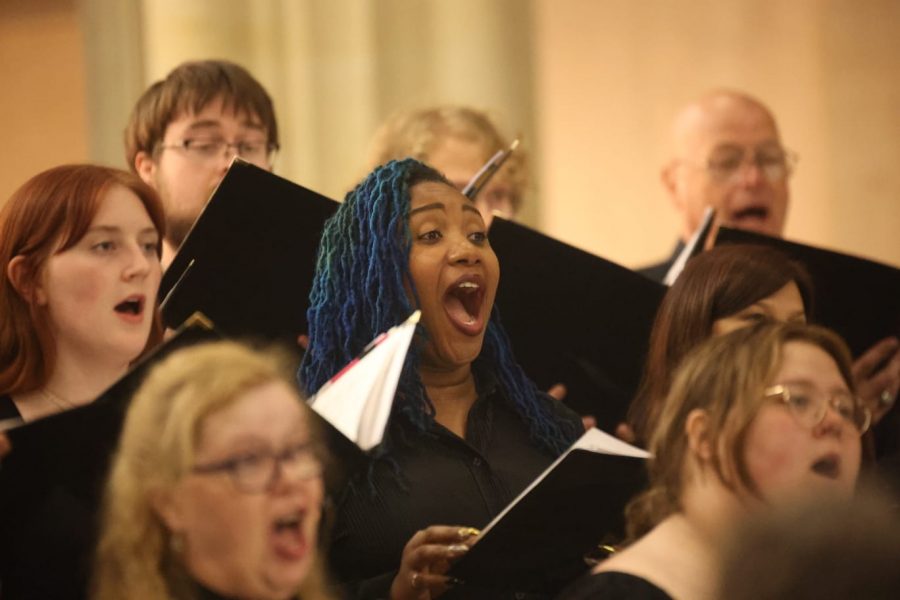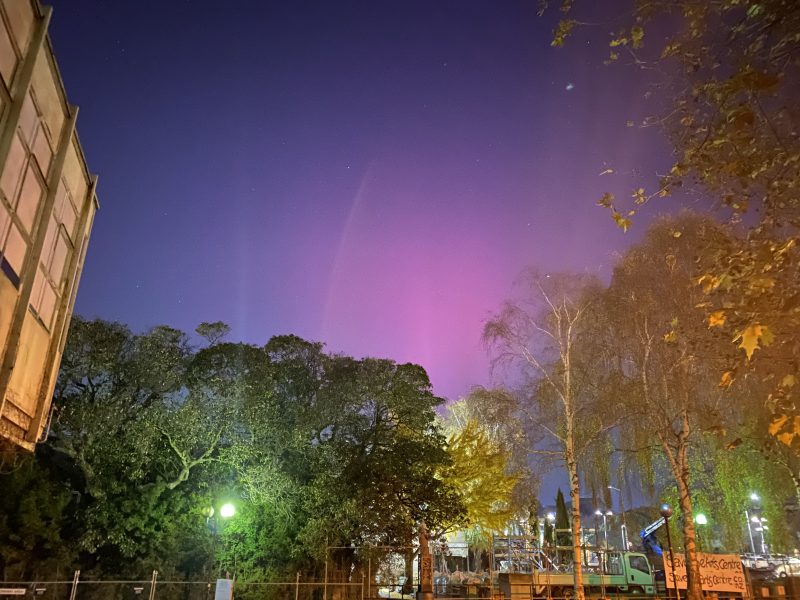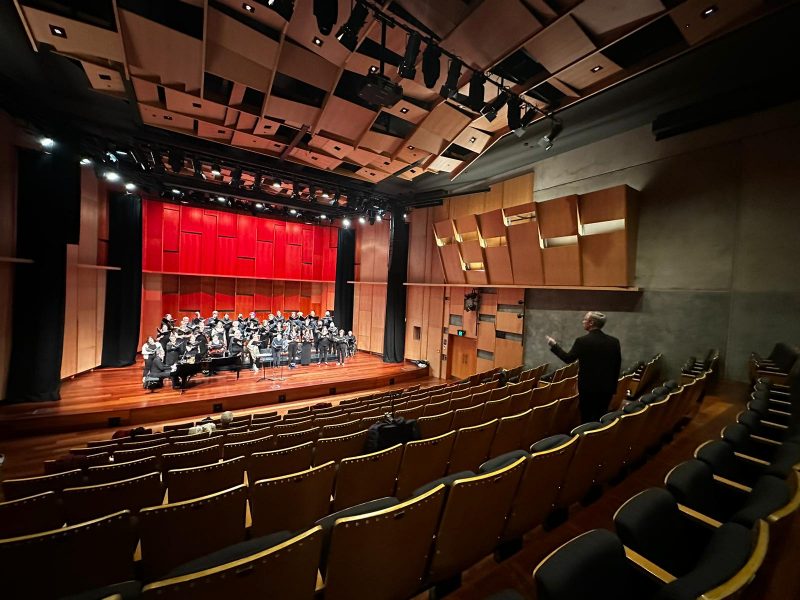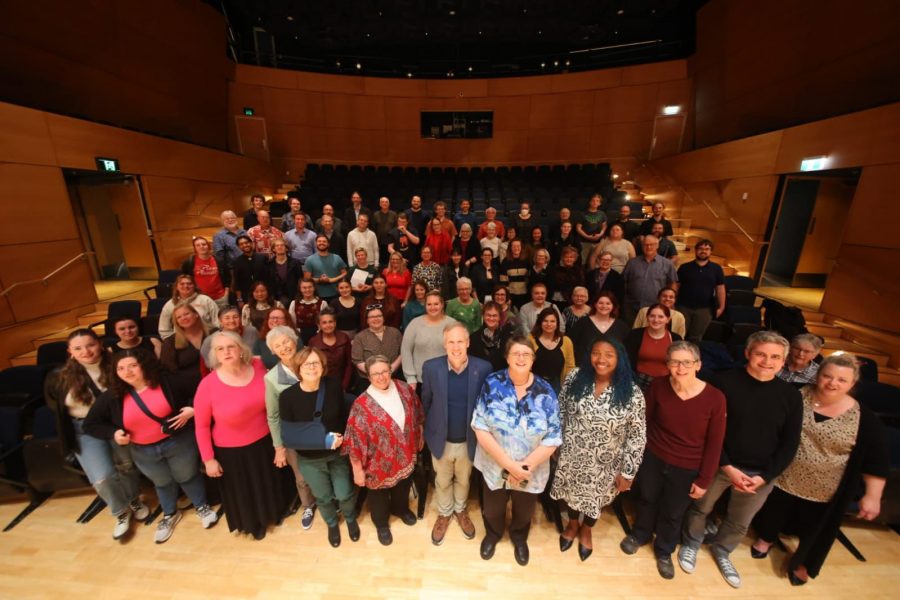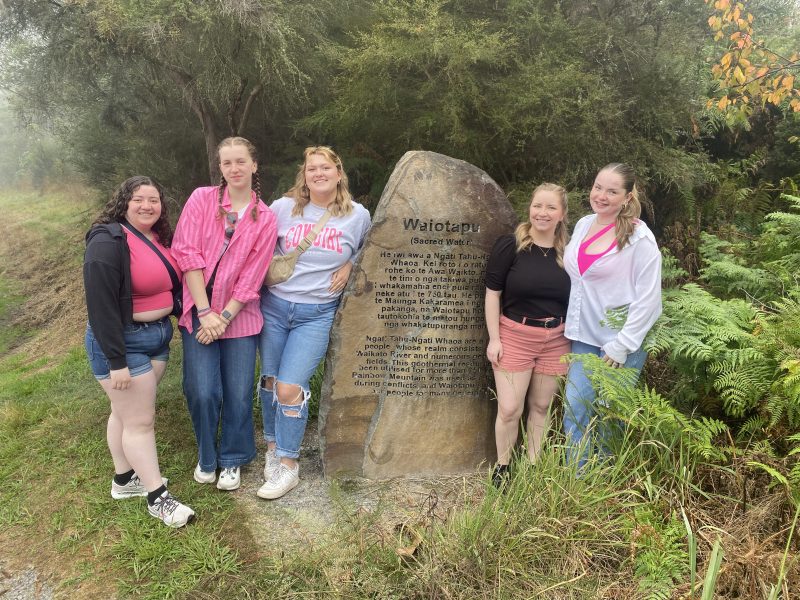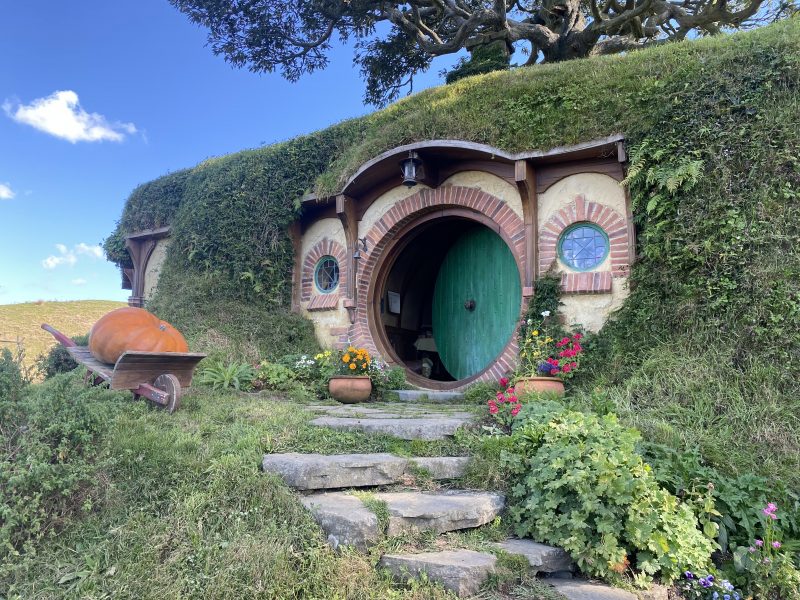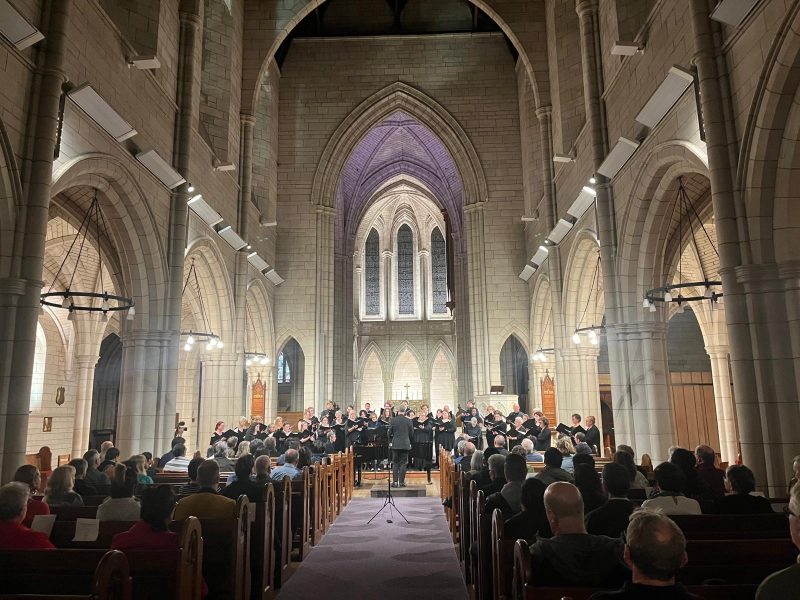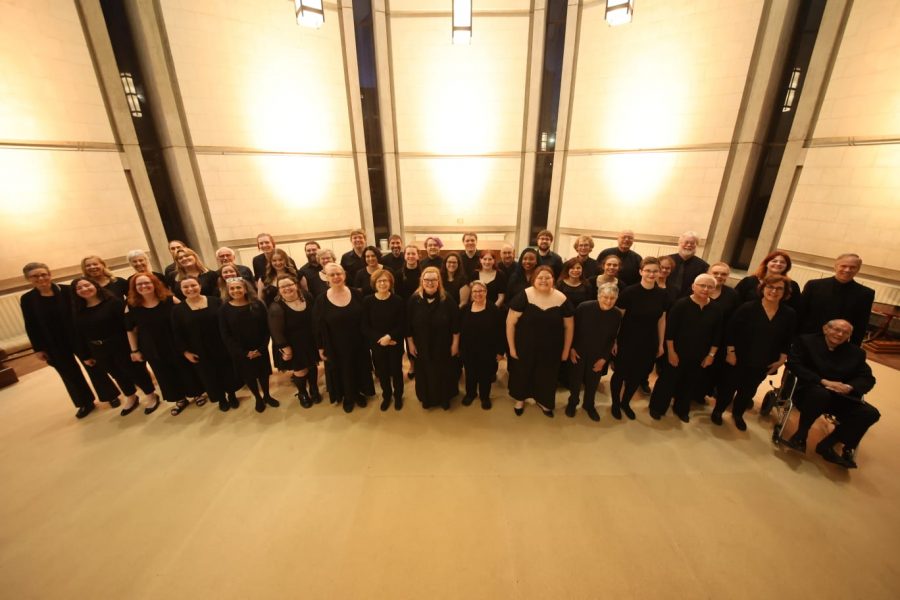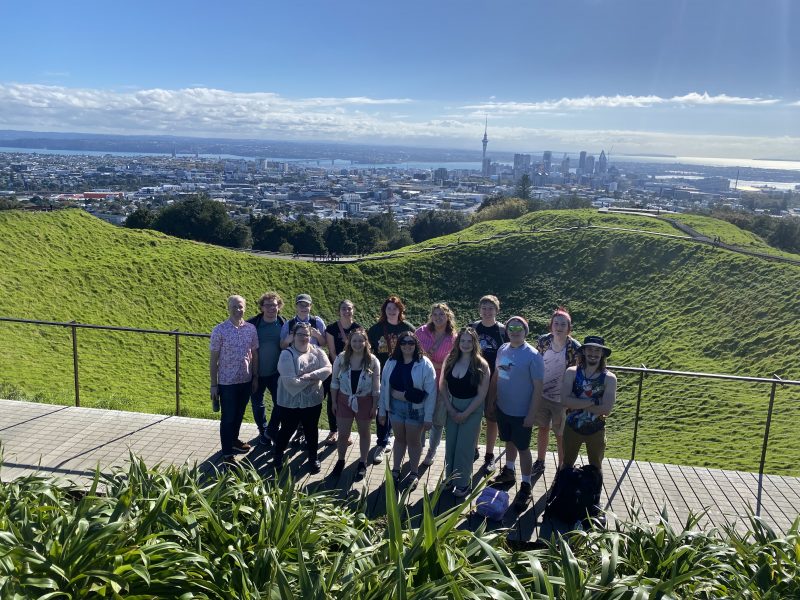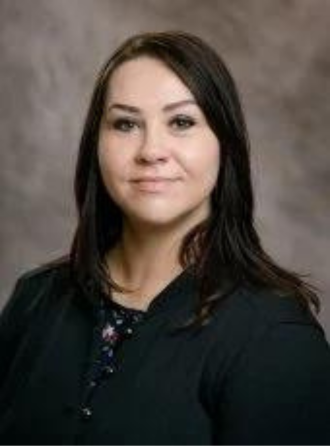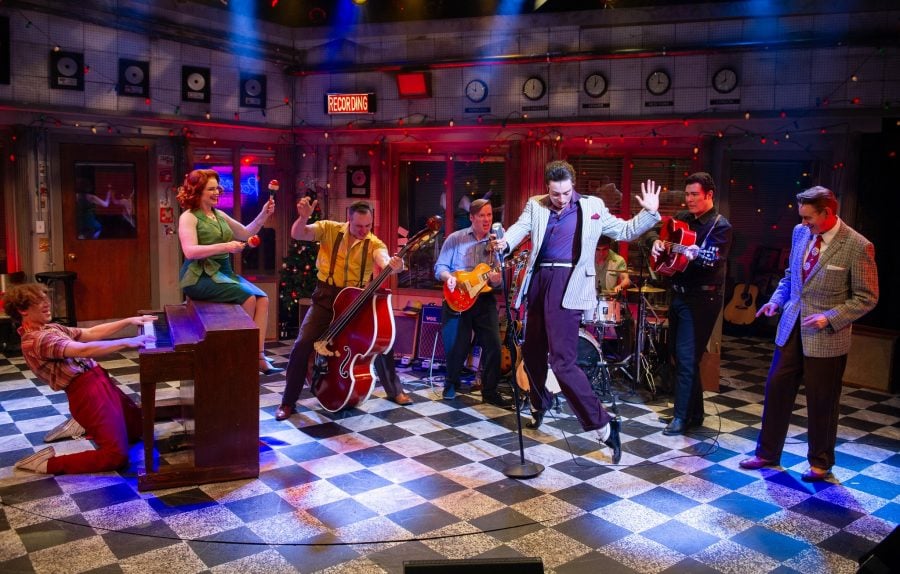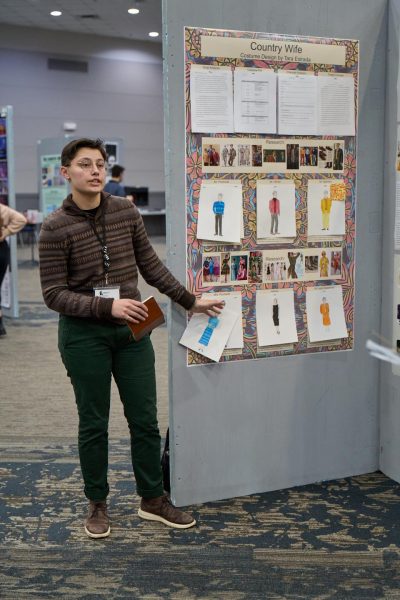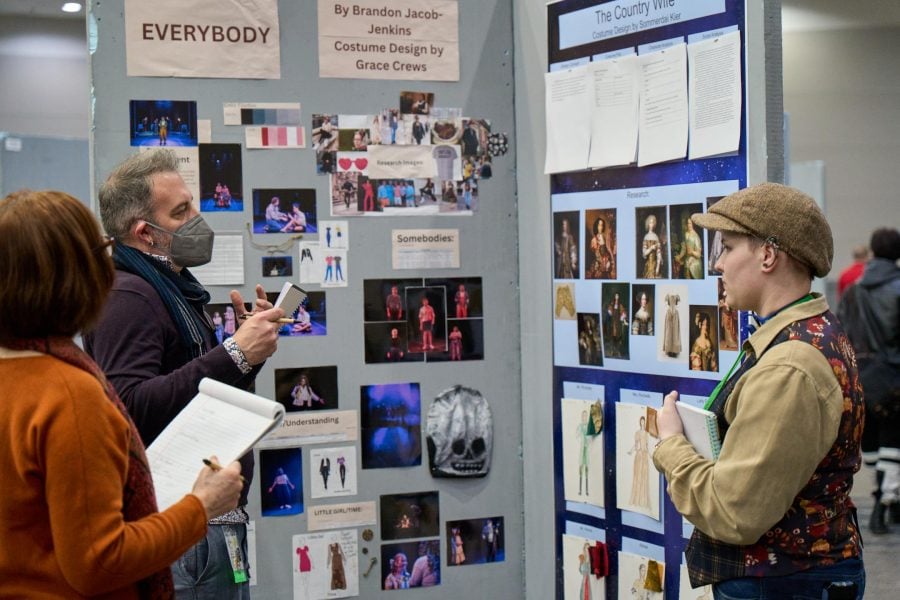On May 1-15, 2024 the members of the Michigan Tech Concert Choir participated in a successful tour of New Zealand. They traveled through Auckland, Rotorua, Hamilton, Wellington, Hanmer Springs, Christchurch, Queenstown, and Dunedin; traveling from the far north to the far south of the country. They were fortunate to have beautiful weather for the trip, with a lot of sunshine and temperatures much like we experience now in the Keweenaw. 58 individuals traveled in the group: 47 performers (including the conductor and pianist) and 11 friends. The youngest choir member was 16 years old and the oldest was 82 years old. Travelers included 17 Michigan Tech students, 2 Houghton HS students (one will be a freshman at Tech in the fall), 6 faculty, 4 retired faculty/staff, 7 choir alumni, and 22 community members.
The choir performed to audiences in lovely venues in each of the major cities. Proceeds from each concert were donated to local charities:
Auckland: St. Matthew-in-the-City Anglican Church
Hamilton: Exchange with the Hamilton Civic Choir (held on the campus of the University of Waikato)
Wellington: St. Mary of the Angels Catholic Church
Christchurch: The Philip Carter Family Concert Hall at The Piano
Dunedin: St. Paul’s Cathedral (Anglican)
Highlights of the tour included visiting the extinct caldera of Mt. Eden (Maungawhau) in Auckland, exploring Hobbiton (near Rotorua), crossing the Cook Strait, seeing the Southern Lights in Christchurch, feeling the mountain air in Hanmer Springs and Queenstown. The choir experienced beautiful vistas, wonderful food, welcoming audiences, and warm sunshine.
Director Jared Anderson said, “I am so proud of how the choir performed in each concert on the tour. They sang with great heart and really represented the university well to each audience. I am also especially grateful for the ways that the members of the choir remained positive through long travel days and the usual obstacles experienced in a travel group of this size. It is a trip that will remain in our memory for a long time. I am also grateful for the support of the College of Sciences and Arts and the Department of Visual and Performing Arts along with many donors who helped to underwrite some the expenses of the trip for the students. Through donor generosity, each student received significant support that was applied to their travel fee. We look forward to traveling again in the future.”
Each year, excellence in Jazz is recognized by way of the Don Keranen Memorial Jazz Scholarship. Two students are chosen by their peers in recognition of improvement, excellence, and leadership. Our award winners this year include one of the drummers from R&D Jazz Band, Eira Techtmann, and The Jazz Lab Band’s lead trumpeter Michael Tarske.
These students all showed leadership, dedication, excellence, and improvement this year. I am grateful for them, and wish them continued success in the coming years.
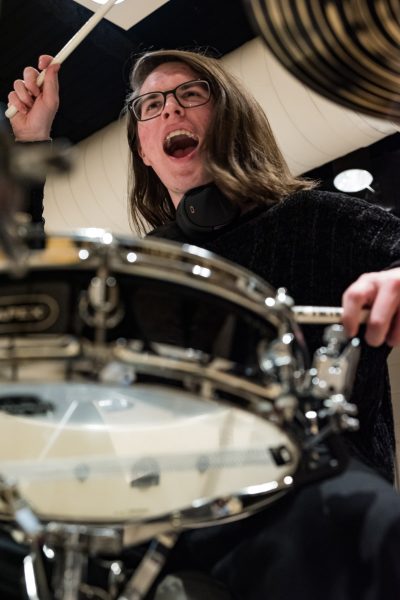
Eira is a drummer, percussionist, and videographer/photographer for Michigan Technological University. They play in a total of 5 bands, including the R and D Jazz Band and Video Game Jazz Ensemble. With drumming influences from Jojo Mayer, Max Roach, and JD Beck, they try to play with a mix of traditional and new jazz whenever they can.
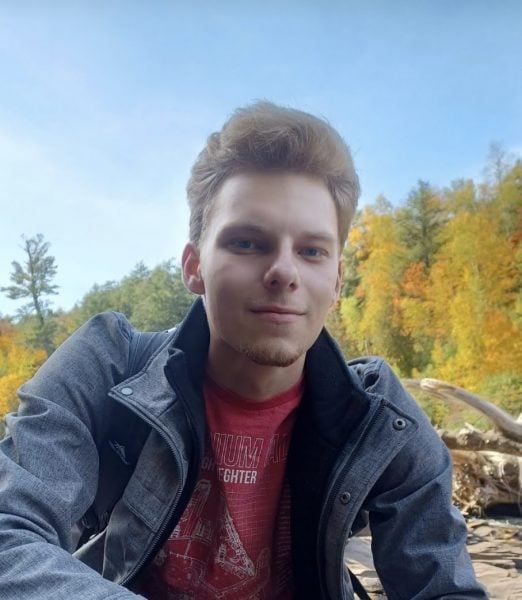
Michael Tarske is a Trumpeter that has been playing Jazz since High School. At Michigan Tech he is an Electrical Engineering Technology major with interest in automation. He started his music journey at Tech by sitting in on an R&D Big Band rehearsal and quickly found interest in the Jazz program. Regardless of where the future takes him, Michael plans to keep Jazz music a prominent part of his life.
by Michigan Tech Music | Rozsa Center for the Performing Arts
The Keweenaw Symphony Orchestra and Michigan Tech Choirs, conducted by Jared Anderson (Visual and Performing Arts), will close the 2023/2024 Rozsa Season tomorrow (April 20) at 7:30 p.m. with the spectacular Great Lakes premiere — and second performance ever — of Dwight Bigler’s “Mosaic for Earth.”
Over 150 local musicians will gather on the Rozsa stage for this awe-inspiring performance by the KSO and Michigan Tech Choirs. The concert will also feature the Houghton Area Children’s Chorus, prepared by Hillary Arundel, and guest soloists Soren Schmidt, Lara Neves, Kathryn Summersett and Drake Dantzler.
Throughout the 100-minute concert, audiences can expect to be swept away by breathtaking visual scenes designed to accompany the music. Together, they showcase the beauty of our planet and our responsibility to protect it.
Concert Details:
- What: “Mosaic for Earth” Presented by Michigan Tech Music
- Keweenaw Symphony Orchestra and Michigan Tech Choirs
- When: Saturday, April 20, at 7:30 p.m.
- Where: Rozsa Center for the Performing Arts
- Tickets: Pay As You’re Able ($20 full ticket fee). Student Rush included with Experience Tech fee. Get tickets.
Terri Frew Dean’s Teaching Showcase Selection Delivers Distinctive Display of Educational Excellence
College of Sciences and Arts Dean, Ravindra Pandey, selected Terri Frew for this week’s Dean’s Teaching Showcase. Frew, an Assistant Teaching Professor in the Visual and Performing Arts department, will be recognized at an end-of-term event with other showcase members. Frew is a candidate for the CTL Instructional Award Series.
Course Creativity Includes Community and Collaboration
Professor Frew demonstrates excellent teaching in a wide range of visual arts classes, including large general education courses (Art Appreciation), small studio courses (Drawing, Art + Design Studio, Ceramics, Fiber Arts), and theory courses (Color). Frew commits to nurturing creative exploration, practical hands-on skills, and critical analysis. She experiments with using community engagement to enhance student learning. For example, Frew partnered with the Hancock Community Garden for her Art + Design course. She also enjoys offering students new ways to think about what they are learning.
This semester she is piloting a new course in Fiber Arts. The course pairs creative “making and doing” with critical conversations about the role of hand-made items and craftsmanship, both historically and in today’s society. Jared Anderson, chair of the Visual and Performing Arts department, described Frew’s teaching as “ambitious, inclusive, and collaborative. Within the framework of arts education, she creates opportunities for students to explore varied topics and gain new perspectives. Her commitment to her teaching practices, students, and the university community is to be commended.”
Frew Dean’s Teaching Showcase Winner Displays Creativity and Expression
Professor Frew also serves as the Director of the Rozsa Galleries. She builds partnerships with other departments on campus related to the gallery’s exhibits. Frew fosters a gallery experience that highlights diverse perspectives and appeals to a wide audience. In 2022, she curated Arabesque, an exhibit that partnered international artist Clement Yeh with local artist Tomas Co. Created in close collaboration with the Rozsa Center’s programming, complementing the Rozsa’s fall ballet concert, Arabesque included drawings, sculptures, and video. Her recent curatorial project, Simple Machines, paired the work of Ukrainian Artist Yuliya Musakova and Michigan Tech Humanities professor M. Bartley Seigel. The multimedia exhibit included audio clips of the poets reading their work, a live printing demonstration, and a live performance from the visiting poet Musakova.
“Offering a vibrant arts curriculum that is available to all students is an important way that Michigan Tech sets itself apart as a STEM-focused institution”
“When we give students opportunities to explore creative and expressive practices, we enhance their ability to be truly innovative within their majors and in their future careers. We are fortunate to have outstanding faculty like Professor Frew encouraging Michigan Tech students to engage with the arts both now and throughout the rest of their lives.”
Congratulations to Jeff Sherwood, Assistant Professor of Sound, on his professional theatrical sound design for the ACT of Connecticut production of Million Dollar Quartet in Ridgefield, Connecticut. The musical was directed by Broadway actor and director Hunter Foster, who was an original cast member of the Broadway production.
The production opened on Saturday, February 24, 2024 and from the overwhelming response of the preview audiences, the show run was extended an extra week, now through March 23. The musical revolves around the historical twist of fate on December 4, 1956 that brought together Johnny Cash, Jerry Lee Lewis, Carl Perkins, and Elvis Presley.
This creative activity and research in theatrical sound design continues to elevate the reputation of Michigan Tech to audiences around the country as well as potential future employers of Michigan Tech students and alumni.
Libby Meyer, Teaching Professor in Visual and Performing Arts was recently featured in an article written by Garrett Schumann for Arts Midwest about musicians in Michigan working and creating in rural locations.
The article can be found here: https://artsmidwest.org/rural-resonances-three-michigan-musicians-embrace-place-in-their-practice/
By Visiting Assistant Professor Terry Dana Jachimiak
From January 9 to 13, several faculty and students from the Department of Visual and Performing Arts embarked on an exciting journey to the Kennedy Center American College Theatre Festival for Region III. This festival, widely known as KCACTF, stands as a beacon for emerging talent in the realm of theater arts. It’s a vibrant stage where students get to shine, compete, and nurture their artistic skills on a regional platform.
Behind the scenes, two VPA faculty members, Associate Professor Kent Cyr and Assistant Professor Jeff Sherwood, played integral roles in the festival’s planning and execution. Cyr, with a remarkable six-year stint as the Festival Technical Director, provided invaluable support to numerous college theater productions within the region. His expertise ensured the seamless execution of performances on the festival stages. Sherwood, in his capacity as Co-Vice Chair of Design, Technology, and Management, contributed to the festival’s success by overseeing various technical theater aspects, including the National and Regional Design competitions, Design Storm, and Stage Management Fellowship and Initiative. To add to their contributions, Sherwood, Cyr, Distinguished Professor Christopher Plummer, and Visiting Assistant Professor Terry Dana Jachimiak II led workshops for eager students hailing from Michigan, Illinois, Wisconsin, Indiana, and parts of Ohio.
For the attending students, this festival was a treasure trove of experiences. They had the opportunity to participate in professional workshops, attend juried shows, network with professionals from all corners of the country, and showcase their own work in various competitions. It was a whirlwind of creativity and camaraderie.
The accolades poured in for our Michigan Tech University students, validating their exceptional talents. Evelina Cremeens earned the Regional Sound Design award for her outstanding work on *Hamlet*. Conner Pierson, collaborating with a talented team from different colleges and universities, clinched an Honorable Mention in the Design Storm category. Sommerdai Kier and Riy Dalman dazzled everyone by winning multiple awards, including the Fastest Sound setup and the coveted Gold Award in Tech Olympics. Tara Estrada’s swift knot-tying skills also earned her a first-place finish in the Fastest Knots section of Tech Olympics.
Christopher Plummer was also recognized at the festival and received the 2024 KCACTF Region III Michigan Faculty Service Award.
The Kennedy Center American College Theatre Festival showcased the incredible talents of our students and highlighted the dedication and expertise of our faculty members. It was a celebration of creativity, innovation, and the thriving theater community at Michigan Tech.
The Rozsa Center for the Performing Arts is injecting a spark of excitement into this blustery week by announcing three thrilling events: a rollicking Mardi Gras feast fueled by New Orleans jazz, a play directed by Michigan Tech Theatre’s newest faculty member, and a bespoke museum experience crafted just for the Keweenaw. Tickets are on sale now!
Michigan Tech Music presents “Mardi Gras Fat Tuesday” — Get ready for an epic Fat Tuesday, fueled by live jazz and a New Orleans-inspired dinner hosted by Michigan Tech Jazz’s own Workshop Brass Band, freshly back from their NOLA tour! The party starts February 13 at 7:30 p.m. backstage at the Rozsa.
Michigan Tech Theatre presents “Imagining (Im)Possibilities: Museum Explorations” — Experience a captivating 30-minute tour through the world of immersive museum exhibits. Explore the magic behind museum design and dive into spectacular sets crafted by talented theatre students, each one transporting you to a unique space through interactive displays. Tours run February 15-17 from 7-9:30 p.m. in McArdle Theatre.
Michigan Tech Theatre presents “Purple Hearts” by C.S. Wallace, directed by Nich Radcliffe — Witness the heartbreaking, inspiring and sometimes funny story of three men who, in the wake of the attack on Pearl Harbor, find themselves trapped aboard the now-sunken USS West Virginia. Inspired by true events, this award-winning play directed by new Michigan Tech faculty member Nich Radcliffe (VPA) is sure to move you. Attend the show April 10-13 in McArdle Theatre.
Get Tickets
Don’t miss your chance to experience these exciting events! Tickets for all three are available online 24/7, or at the Rozsa Box Office in person or by calling 906-487-1906 from 11 a.m. to 1 p.m. Monday through Friday. Tickets are part of this season’s new Pay As You’re Able ticketing.
To learn more, visit the Rozsa website, email rozsa@mtu.edu or call 906-487-1906.
Auditions for Purple Hearts by Burgess Clark, Directed by Nich Radcliffe, will be held January 29, 30 with callbacks February 1.
Monday, January 29 – 6-9pm.
Tuesday, January 30 – 6-9pm.
Performance Majors: Prepare two contrasting monologues.
All Others: Prepare one monologue two minutes or less.
Don’t have a monologue? No problem! We’ll give you something to read. Email Nich Radcliffe <nradclif@mtu.edu> with question or to book an audition time!
Three Michigan Tech Students were selected as finalists in the Audio Engineering Society (AES) Student Recording Competition. They will present their recordings at the AES Conference in NYC on October 26th.
Spencer Beasley (Audio Production and Technology) was selected as a finalist in the Modern Studio Recording & Electronic Music category for his recording “Glass Air”.
Matthew Fisher (Sound Design) was selected as a finalist in the Sound for Visual Media category for his recording “Alarm”.
Rowdy Vyverberg (Sound Design) also was selected as a finalist in the Sound for Visual Media category for his recording “RPG Audio Implementation”.
Finalists in the music mixing competition were students from major international universities, including the Peabody Institute (Johns Hopkins), University of Toronto, Hochschule Düsseldorf, McGill University, Indiana University, and Arizona State University. Michigan Tech was the only school with three student finalists in the competition. Congratulations!
